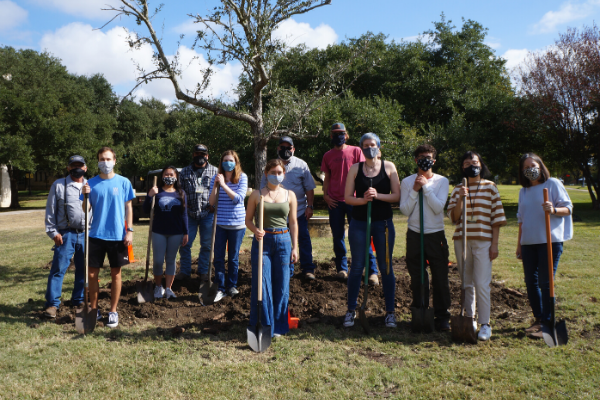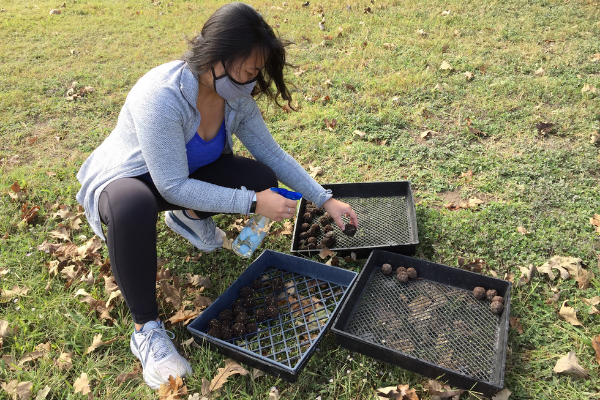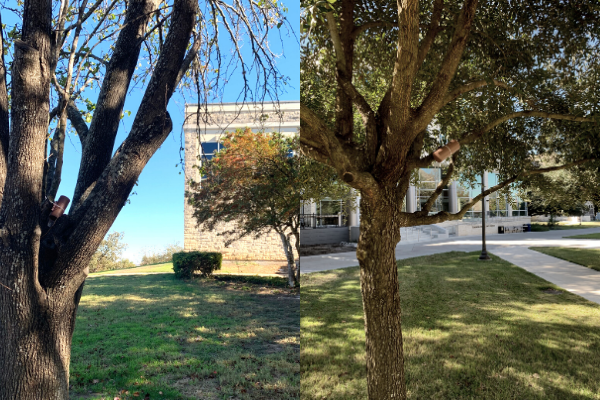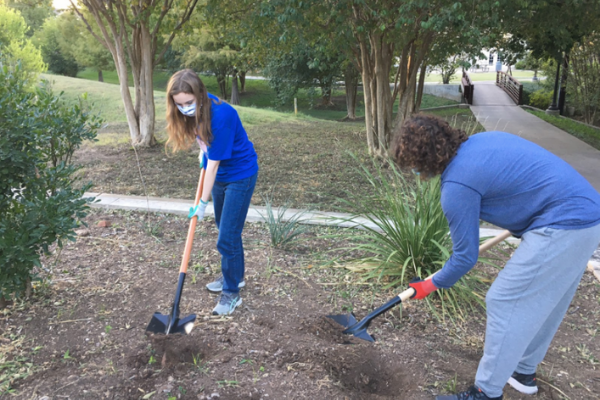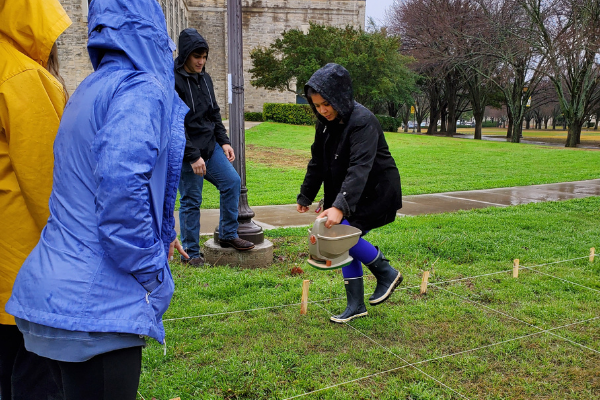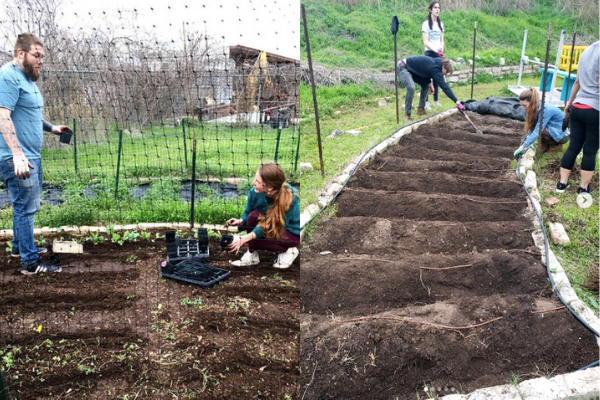Recognition and Reports
Bee Campus USA
Southwestern University is recognized as a Bee Campus USA institution after meeting Xerces Society for Invertebrate Conservation requirements to be a certified, pollinator-friendly campus.

Bee Campus USA is an initiative of the Xerces Society for Invertebrate Conservation that provides recognition for universities in the U.S. that are committed to preserving local biodiversity. Institution commitments include protecting and advancing pollinator habitats, limiting the use of synthetic pesticides, and engaging in public awareness initiatives.
Southwestern University is the 1st campus of our peer institutions, 7th campus in the state of Texas, and 87th campus in the nation to have attained Bee Campus USA certification.
Contact us:
BEE-Co & Bee Campus Social Media:
The initial certification of Southwestern University as a Bee Campus USA institution was accomplished through a 2019 Environmental Studies capstone project, including Samantha Buehler, Karonech Chreng, Katey Ewton, Abigail Lloyd, and Spencer Kleypas, their advisor, Dr. Joshua Long, and with support from Facilities Management and the Sustainability Committee.
All affiliate commitments and renewed certification are accomplished by student beekeeping organization BEE-Co (Beekeeping Engagement and Education Community), est. 2023.





























